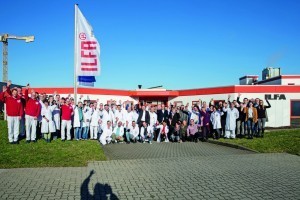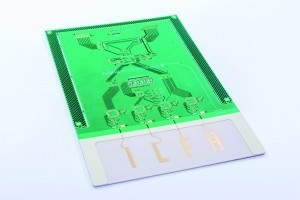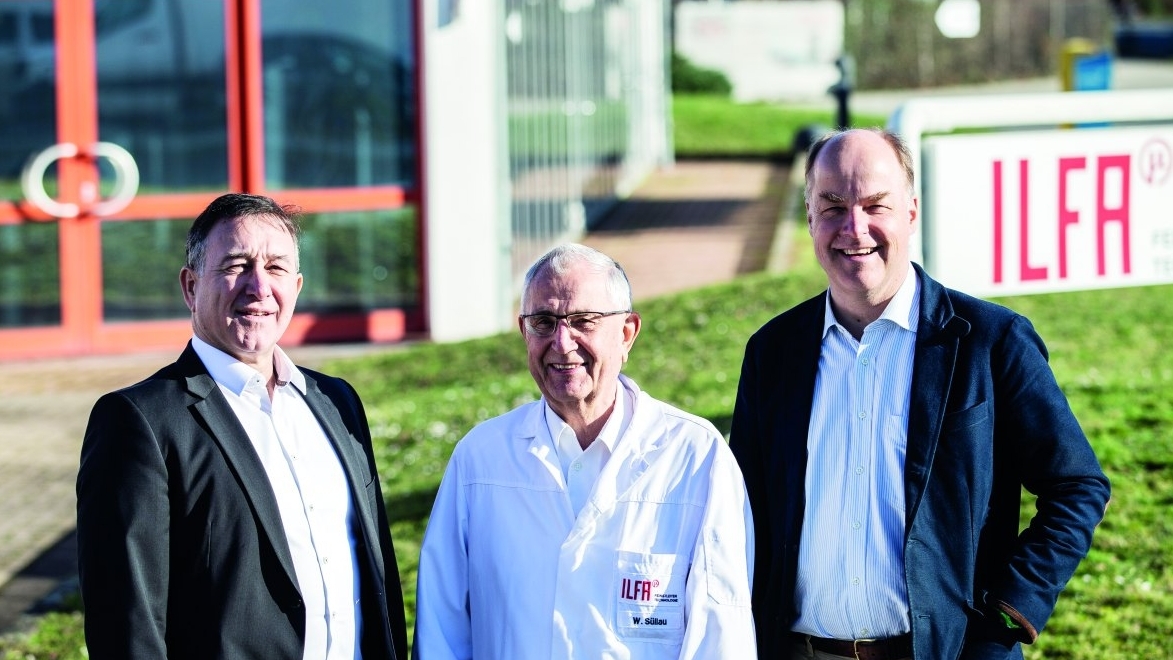Christian Georg Behrendt, Managing Partner of ILFA Industrieelektronik und Leiterplattenfertigung aller Art GmbH, Hanover, and Thomas Michels, who run the company together, explained the challenges associated with the current situation caused by the coronavirus and how the 160-strong company is dealing with them in an interview with the PLUS editorial team.
Electronics and the electronics industry are generally viewed positively. After all, many (often indispensable) products cannot be realized without electronics. This applies in particular to the large quantities of ventilators currently required worldwide. As a result, the reputation of the manufacturers involved in this field, including ILFA with its printed circuit boards, is growing. However, maintaining the (global) supply chain is currently a challenge not only for ventilators but for all products containing electronics. This is because disruptions - which have been occurring since the start of the pandemic - pose the risk that products can no longer be manufactured on time or in the planned quantities. It is important to take countermeasures at an early stage. ILFA team in front of the company building (Source: Ilfa)
ILFA team in front of the company building (Source: Ilfa)
Risks of global supply chains
In today's complex global supply chains, the failure of just one supplier of components anywhere in the world can bring an automotive plant in Germany, for example, to a standstill. This is also the case with printed circuit boards, as the large quantities for the series production of cars have so far come from Asia, mostly from China, and the supply chains have been interrupted - at least temporarily. Changes to the supply chain are difficult here and only possible in the long term. However, efforts are being made by OEMs and suppliers to change this. The further reduction in capacity for electronics and PCB production is to be stopped and, if possible, 'turned around'. The BMBF's flagship initiative 'Trustworthy Electronics', which was launched this year, also contributes to this, with which Germany aims to promote its own economic electronics production and thus achieve greater technological sovereignty.
In addition to automotive production, which accounts for around 7 to 8% of Germany's economic output, the majority of German industry produces smaller quantities. This makes changes to the supply chain less difficult and possible at short notice. This is precisely where ILFA comes in as a supplier that can offer and manufacture the required, usually technologically sophisticated PCBs here in Germany.
Requirements-oriented PCB development and a secure supply chain
The medium-sized company ILFA is primarily active in the high-tech segment with PCBs of up to 38 layers and a wide variety of structures. It serves customers from the aerospace and defense technology, robotics and medical technology sectors, among others.
These include PyroSience from Aachen, a company that manufactures components for ventilators. In view of the current situation in Germany, the company was looking for a reliable partner for its printed circuit boards. This is because the supply chain for ventilators must be as secure as possible. PyroSience chose ILFA because the order was given the highest priority and could be delivered within the shortest possible time. ILFA's long-standing practice of developing PCBs in line with customer requirements pays off for the customer, especially when it comes to sophisticated products. This saves time and costs. ILFA manufactures prototypes and series of up to 100,000 units per year in Germany and can supply larger quantities if required via its own offices in Taipei, Taiwan, and Shenzen, China. Hybrid PCBs are a cost-effective solution for combining different properties and materials
Hybrid PCBs are a cost-effective solution for combining different properties and materials
Technological expertise as a basis
According to Christian Georg Behrendt, ILFA is one of the three leading suppliers in Germany when it comes to technological expertise. In recent years, ILFA has already investigated and implemented technologies for the digital solder mask and embedding of components as well as microcooling integrated into printed circuit boards in line with the electronics megatrends towards further miniaturization and even higher speeds and performance. ILFA also has extensive experience with assemblies made of special base materials such as LCP and PTFE for applications with special requirements such as HS signal integrity, EMC or (patch) antenna properties.
"Together we want to ... develop and manufacture a product that meets customer requirements at the best possible cost."
Accordingly, the quality standard is also high. ILFA is certified to ISO 9001, ISO 14001 and EN 9100 as well as IPC and UL standards. Plans are currently underway to obtain ESA qualification.
The goal of ILFA, as Christian Georg Behrendt put it, is: "Together we want to quickly develop and manufacture a reproducible product that meets customer requirements at the best possible cost." ILFA's activities are also geared towards this in coronavirus times. And digitalization is also being driven forward.
During the crisis, some of the required materials were difficult and sometimes unavailable, which meant that there were also difficult times for production. This has now calmed down, but it remains to be seen how developments will continue. This is because there is only one HT base material manufacturer left in Europe, ISOLA, and the global supply chain remains unstable. Nevertheless, ILFA remains optimistic about the future.
ILFA agrees with AT&S CEO Gerstenmeier's analysis that Chinese production is currently catching up faster and that there is a risk of a further migration of production to Asia/China. The Chinese location will continue to grow if the large domestic manufacturers (OEMs) do not take countermeasures and allow more scope for purchasing PCB production in Germany/DACH and Europe. Of course, there cannot be a surcharge such as a Germany/EU premium, but the German/European PCB manufacturers must offer competitive prices. "If the volume is there, then it is possible and further investment will be worthwhile."
Politics is also needed here. Import duties must be levied on PCBs from non-EU countries - as compensation for the state subsidies that electronics manufacturers in China receive.
IT security and the production of safety-critical products
For the IT security of electronic devices, the basic hardware, the printed circuit board - bare and assembled - is of central importance. This is because all signals/data produced or processed by the product in question flow via or through the PCB.
A strong trend has developed in the USA to bring the entire production of safety-relevant electronic products back to the USA. This also needs to be carefully analyzed in Germany and the EU.


